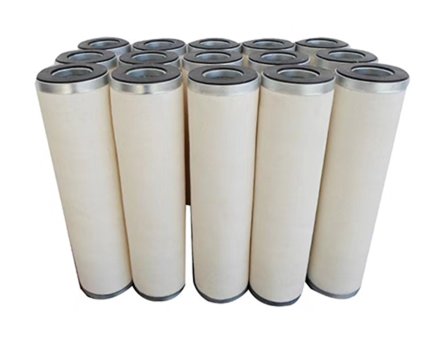 Tel:
+8615930870079
Tel:
+8615930870079
8월 . 20, 2024 01:52 Back to list
Efficient Cartridge Vacuum Filter Solutions for Enhanced Filtration Performance
Understanding Cartridge Vacuum Filters An Essential Component for Efficient Filtration
Cartridge vacuum filters are crucial devices in various industrial processes, primarily used for separating solids from liquids or for the removal of fine particles from gases. Their application spans multiple sectors including pharmaceuticals, food and beverage, chemical processing, and wastewater treatment. This article provides an overview of the functioning, design, advantages, and applications of cartridge vacuum filters.
Working Principle
The operating principle of cartridge vacuum filters revolves around the use of a filter medium housed within a cylindrical cartridge. When a slurry or liquid mixture is fed into the filter, a vacuum is applied, creating a pressure differential across the filter medium. This vacuum draws the liquid through the cartridge, leaving the solid particles on the surface of the filter. As the process continues, the solids build up, forming a cake that can further enhance the filtering process.
The design of these filters ensures that they can achieve high filtration efficiency while minimizing the risk of clogging. This is largely attributed to the porous nature of the filter cartridges that can be designed from various materials, including polypropylene, nylon, and stainless steel, based on the specific requirements of the application.
Advantages of Cartridge Vacuum Filters
One of the primary advantages of cartridge vacuum filters is their effectiveness in achieving high levels of solid-liquid separation. They are designed to operate continuously, allowing for uninterrupted production processes, which is a significant advantage in industrial applications. Additionally, cartridge vacuum filters are relatively easy to maintain, as cartridges can often be replaced or cleaned without the need for extensive downtime.
Another significant advantage is the flexibility in their design and operation. Cartridge vacuum filters can be configured in various ways to suit specific filtration needs, including the choice of mesh size, pore dimensions, and material types. This adaptability makes them suitable for a wide range of applications, from coarse filtration to fine polishing.
cartridge vacuum filter

Moreover, the vacuum aspect of these filters leads to lower energy consumption compared to conventional gravity filters or pressure filters. The efficient removal of solids means that the resulting filtrate can often meet strict quality standards with minimal additional treatment.
Applications in Various Industries
In the pharmaceutical sector, cartridge vacuum filters are essential for the production of sterile solutions and for separating active ingredients from solvents. Their ability to maintain cleanliness and prevent contamination is crucial in this highly regulated industry.
In the food and beverage sector, these filters are used for clarifying juices, beers, and oils, ensuring that the final products meet safety and quality standards. The ease of cleaning and the ability to maintain hygienic conditions further enhance their applicability in food processing.
The chemical industry also benefits from cartridge vacuum filters, where they are used for recycling solvents, separating catalysts, and various other filtration processes that require high efficiency and reliability. In wastewater treatment, cartridge vacuum filters are employed to remove suspended solids and to facilitate the recovery of valuable materials.
Conclusion
Cartridge vacuum filters play an indispensable role in modern industrial filtration processes. Their combination of efficiency, adaptability, and ease of maintenance makes them a preferred choice for various applications across multiple sectors. As industries continue to evolve and prioritize sustainability and efficiency, the significance of cartridge vacuum filters is likely to grow, making them a vital component in the quest for cleaner, more effective filtration solutions.
-
Types and Applications of Air Filtration CartridgesNewsJul.28,2025
-
The Role of Gas Turbine FiltersNewsJul.28,2025
-
Mastering Air Filter Cartridge UseNewsJul.28,2025
-
Advanced Turbine Filters for Modern Gas TurbinesNewsJul.28,2025
-
Cellulose Air Filter Cartridge Advantages in Dust FiltrationNewsJul.28,2025
-
Cellulose Filters for Air Particle ReductionNewsJul.28,2025

 Email:
Email:





